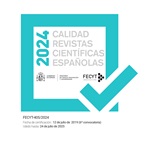El Tribunal General pone fin a la sinrazón del Consejo y la Comisión (sentencias de 29 de septiembre de 2021): no habrá más acuerdos para explotar los recursos naturales del Sahara Occidental sin el consentimiento del Frente Polisario. (RI §424669)

The General Court puts an end to the Council and Commission's unreasonableness (Judgments of 29 september 2021): no more agreements to exploit western Sahara's Natural Resources without the consent of the Polisario Front -
Juan Soroeta Liceras
El presente estudio analiza las sentencias de 29 de septiembre de 2021 del TG que anulan las Decisiones relativas a la explotación de los recursos naturales del Sahara Occidental en materia de pesca y de libre comercio. Por una parte, el autor celebra que el TG haya corregido la deriva política de ambas Decisiones y que haya establecido que lo acuerdos solo serán válidos si cuentan con el consentimiento del pueblo saharaui, y que este solo puede ser manifestado a través del Frente POLISARIO. Pero, por otra, critica que el TG mantenga los efectos de ambas Decisiones hasta que el TJUE dicte sentencia en casación, pese que, de conformidad con el artículo 53 de la Convención de Viena sobre el Derecho de los Tratados, ambas Decisiones son nulas, por violar una norma de derecho imperativo (el derecho de autodeterminación).
I. INTRODUCCIÓN. II. LOS PROCEDIMIENTOS PREVIOS ANTE EL TJUE (2015-2018). 1. Los recursos del Frente POLISARIO (2012). 2. La cuestión prejudicial planteada por la High Court británica (2015). 3. Las sentencias del TG (2016) y del TJUE (2018). Los acuerdos no son nulos porque “no son aplicables o se aplican” en el Sahara Occidental. Para que su aplicación sea acorde con el Derecho internacional deben contar con el consentimiento del “pueblo del Sahara Occidental”. 4. La maniobra de la Comisión para obtener el “consentimiento de las poblaciones afectadas” e incluir expresamente en la Decisión impugnada la aplicación de los acuerdos en el Sahara Occidental. III. LOS ACUERDOS DE LIBRE COMERCIO. 1. La Decisión 2019/217 del Consejo, de 28 de enero de 2019, y el recurso del Frente POLISARIO. 2. La Sentencia del TG de 29 de septiembre de 2021. 2.1. Admisibilidad. 2.1.1. El Frente POLISARIO posee personalidad jurídica, subjetividad internacional y legitimación para intervenir ante el TJUE. 2.1.2. El Frente POLISARIO está directamente afectado por la Decisión recurrida. 2.1.3. El Frente POLISARIO está individualmente afectado por la Decisión recurrida. 2.2. El fondo del asunto. 2.2.1. La “situación particular del Sahara Occidental” no exime de la obligación de obtener el consentimiento del pueblo saharaui. 2.2.2. La sustitución del requisito del consentimiento del pueblo saharaui por consultas a las “poblaciones afectadas” no forma parte del margen de apreciación de las instituciones en el marco de las relaciones exteriores, y no excluye su control jurisdiccional por el TJUE. 2.2.3. El carácter colectivo del derecho de autodeterminación de los pueblos no impide su invocabilidad. 2.2.4. La UE no puede reconocer la soberanía de Marruecos sobre el Sahara Occidental. 2.2.5. El principio del efecto relativo de los tratados es aplicable a los TNA de la misma forma que a los Estados. 2.2.6. Las consultas realizadas por la Comisión a “las poblaciones afectadas” no constituyen el consentimiento del “pueblo del Sahara Occidental” exigido por el TJUE. 2.3. El mantenimiento de los efectos de la Decisión. IV. LOS ACUERDOS DE PESCA. 1. La Decisión 2019/441 del Consejo, de 4 de marzo de 2019, y el recurso del Frente POLISARIO. 2. La Sentencia del TG de 29 de septiembre de 2021. V. CONCLUSIONES.
This study analyses the judgments of 29 September 2021 of the TG annulling the Decisions on the exploitation of Western Sahara's natural resources in the areas of fisheries and free trade. On the one hand, the author welcomes the fact that the TG has corrected the political drift of both decisions and has established that the agreements will only be valid if they have the consent of the Saharawi people, which can only be expressed through the POLISARIO Front. On the other hand, however, it criticises the fact that the GC has maintained the effects of both decisions until the CJEU rules in cassation, despite the fact that, in accordance with Article 53 of the Vienna Convention on the Law of Treaties, both decisions are null and void, as they violate a rule of mandatory law (the right to self-determination).
I. INTRODUCTION. II. PRELIMINARY PROCEEDINGS BEFORE THE COURT OF JUSTICE (2015-2018). 1. The appeals of the POLISARIO Front (2012). 2. The question referred for a preliminary ruling by the British High Court (2015). 3. The judgments of the GC (2016) and the CJEU (2018). The agreements are not null and void because they are "not applicable or applied" in Western Sahara. For their application to be in accordance with international law they must have the consent of the "people of Western Sahara". 4. The Commission's manoeuvre to obtain the "consent of the concerned populations" and expressly include the implementation of the agreements in Western Sahara in the contested decision. III. THE FREE TRADE AGREEMENTS. 1. Council Decision 2019/217 of 28 January 2019 and the appeal by the POLISARIO Front. 2. The GC ruling of 29 September 2021. 2.1. Admissibility. 2.1.1. The POLISARIO Front has legal personality, international subjectivity and standing to intervene before the CJEU. 2.1.2. The POLISARIO Front is directly concerned by the contested decision. 2.1.3. The POLISARIO Front is individually concerned by the contested decision. 2.2. The merits of the case. 2.2.1. The “special situation of Western Sahara” does not exempt the obligation to obtain the consent of the Saharawi people. 2.2.2. The replacement of the requirement of the consent of the Sahrawi people by consultations with the “concerned populations” does not form part of the margin of discretion of the institutions in the context of external relations, and does not preclude judicial review by the CJEU. 2.2.3. The collective nature of the right to self-determination of peoples does not preclude its invocability. 2.2.4. The EU cannot recognise Morocco's sovereignty over Western Sahara. 2.2.5. The principle of the relative effect of treaties is applicable to Non-Self-Governing Territories in the same way as to States. 2.2.6. The consultations carried out by the Commission with "the concerned populations" do not constitute the consent of the "people of Western Sahara" required by the CJEU. 2.3. The maintenance of the effects of the Decision. IV. THE FISHERIES AGREEMENTS. 1. The Council Decision 2019/441 of 4 March 2019 and the appeal by the POLISARIO Front. 2. The Judgment of the GC of 29 September 2021. V. CONCLUSIONS

 DIRECCIÓN / MANAGEMENT
DIRECCIÓN / MANAGEMENT